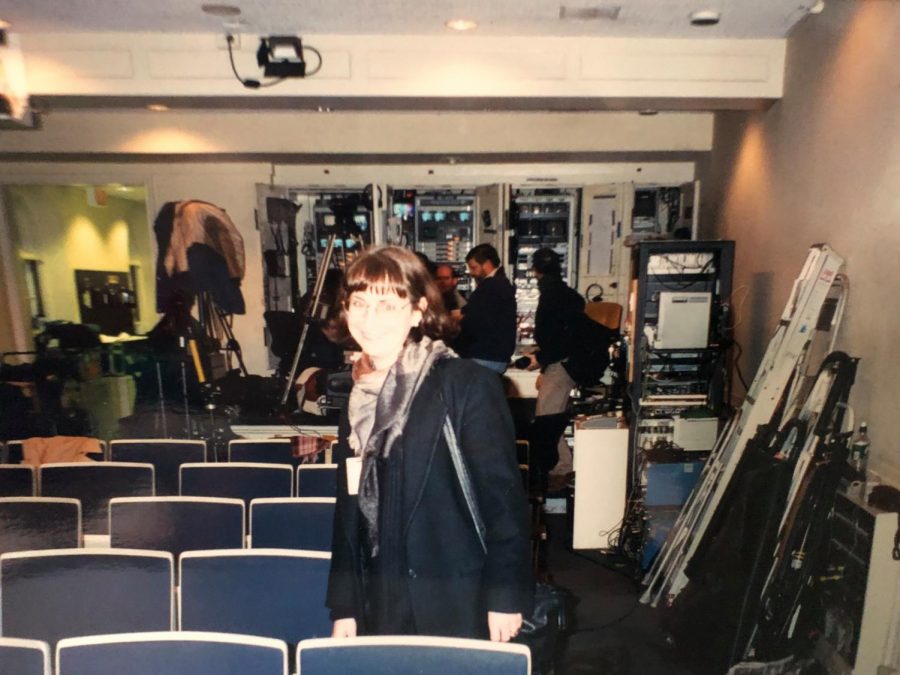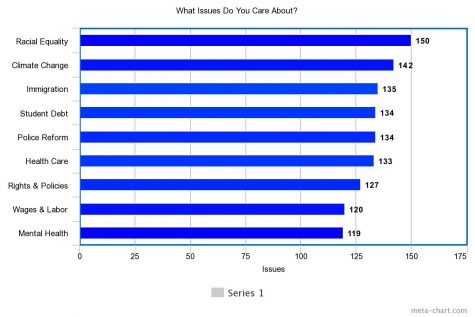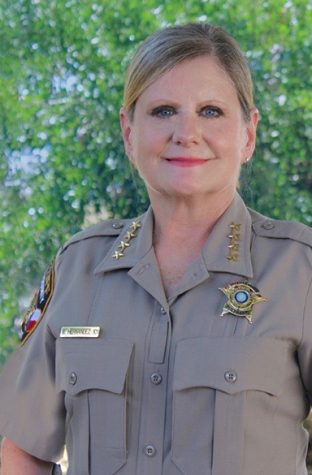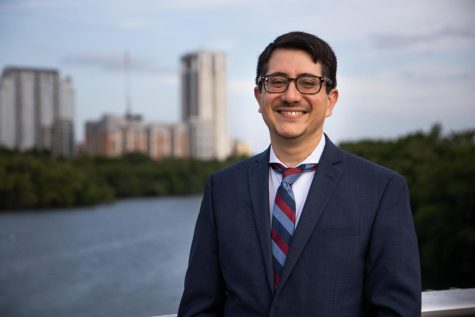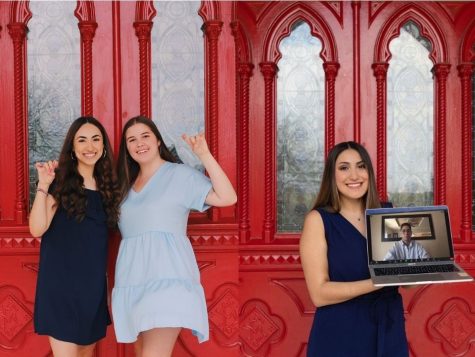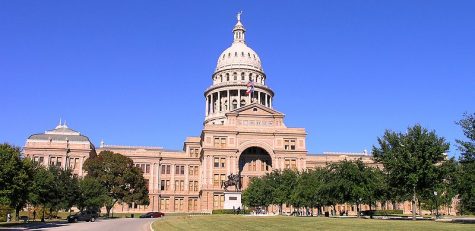Journalism professor reflects on past election coverage, offers retrospective view on today’s reporting
Professor Jena Heath in the White House Press Briefing Room in 2000. Jena Heath is an associate professor in the School of Arts and Humanities at St. Edward’s University.
Since 1999, journalism has been an important part of Jena Heath’s life, and after she was recruited from her job at a local publication in North Carolina to be an election reporter in Washington D.C., her life in the industry changed for the better.
Heath is a well-known faculty member at St. Edward’s University, serving as coordinator of the journalism and digital media program, Associate Dean for Arts & Humanities and as an associate professor for journalism and digital media. She is also the former advisor for Hilltop Views, the student news publication.
Outside of her world here at St. Edward’s, Heath is known for her reporting on the government and her previous editing roles. She has covered a variety of political topics, including the Sept. 11, 2001 terrorist attacks, but her most notable coverage came with the 2000 Presidential Election, where she covered George W. Bush’s campaign for the Austin American-Statesman and Cox Newspapers. She was the American-Statesman’s Washington correspondent.
“I was intimidated. I thought it was such a hell of an opportunity,” Heath said. “I didn’t know anything about George Bush. I got the job and was sort of amazed by it because I went from reporting on the Statehouse in North Carolina to suddenly being on this presidential campaign.”
The goal, when part of the traveling press corps on a presidential candidate, is to cover the candidate “like a blanket,” according to Heath. “We were on the road constantly,” she said. Her reporting team attended speeches, debates and election night. Her experience that evening was quoted in an article written by her then-editor, Rich Oppel, in 2001.
“Your job is to really tell the readers as much as you can about not only what the candidate is saying, but also about their campaign style,” Heath said. “The job wasn’t stenography, it’s done well. You’re reporting, calling sources and trying to fact check all while on a bus and plane.”
Back in 2000, election results were a close call, with Democratic candidate Al Gore winning the popular vote by a mere 0.51% and Bush taking the electoral college vote by 0.93%. Due to these results, the winner was decided by the Supreme Court in a recount dispute case, Bush v. Gore.
It is a fear that the 2020 Presidential Election may experience similar disputes, with president Donald Trump and former Vice President Joe Biden having significantly contrasting political viewpoints and passionate supporters on both sides.
“There’s a lot of discussion now about the election being determined by the Supreme Court,” Heath said. “We all need to remember this has happened before. If the election is not close, the Supreme Court won’t get involved. This is something in the whole discussion that I think gets lost.”
During the 2020 Presidential Election, there has been copious amounts of coverage regarding both Trump and Biden. Journalists today have touched on the most personal sections of each candidate, like Trump’s tax returns, released by the New York Times.
It’s no secret that journalism coverage has grown since the start of Heath’s career. She believes a big reason behind changes in the industry is the growth of social media.
“I think it’s a tough time and something reporters are competing with is swimming in this ocean of misinformation and social media. It’s hard to explain how things have changed,” she said. “My hat is off to the journalists who are covering [Trump].”
Taking a step back after two decades in the newsroom, Heath landed a job at St. Edward’s in 2008 and began teaching digital media full-time. In the same year, she and her husband adopted their first child.
“I always had in mind that I would eventually want to teach and had some sense that I would eventually leave the newsroom. I started to think I should see what else is out there for me,” she said. “My daughter came home in April of 2008 and I started a different chapter of my journalism life in August.”
Heath wasn’t sure where her career in journalism would take her, and worried about the industry losing its grip. Now she realizes the industry isn’t doing downhill, but is rather in a state of transition.
“Newspapers are changing,” she said. “This idea I had that [the journalism industry] was all going to crumble was wrong. It’s not crumbling at all.”
Read more about Professor Heath on St. Edward’s University campus directory profile and on her professional LinkedIn page.
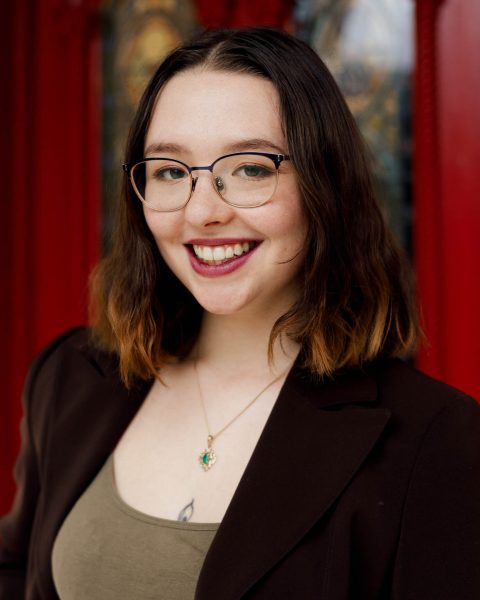
Claire is a senior Communication major with a minor in Journalism continuing to dedicate her time growing and learning as a student journalist. Claire...


